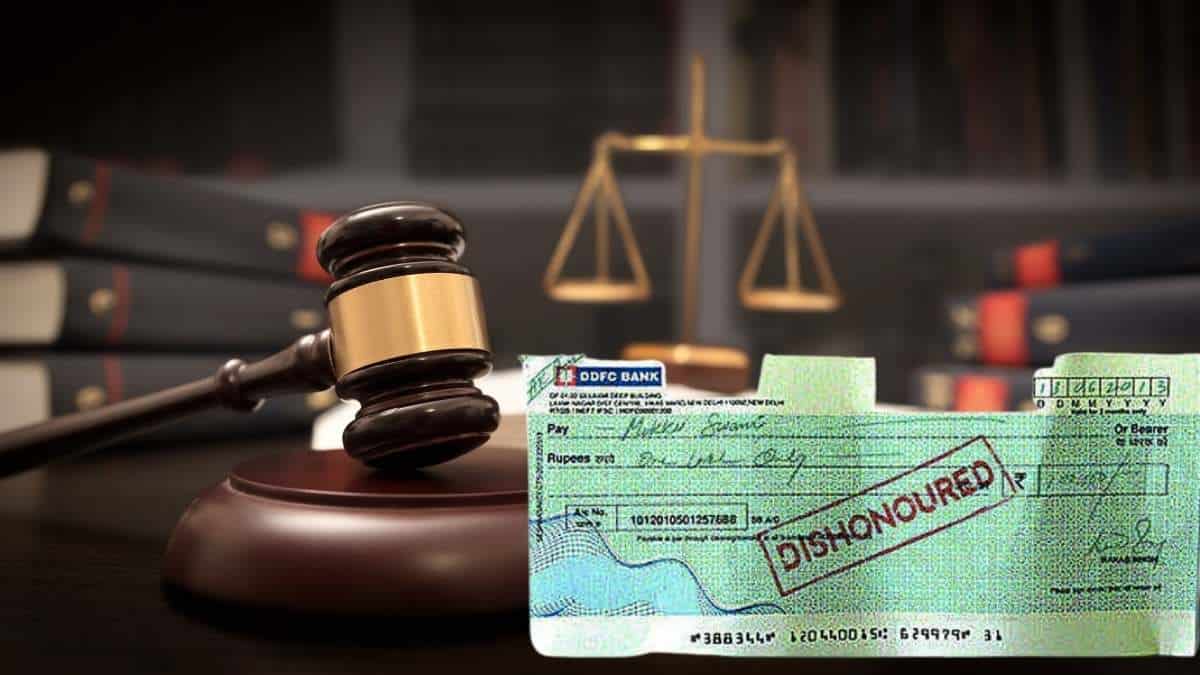Case Title – Prem Raj vs. Poonamma Menon & Anr.
Case No. – Special Leave Petition (Crl.) No. 9778/2018
Dated on – 2nd April, 2024
Quorum – Hon’ble Mr. Justice Sanjay Kharol and Hon’ble Mr. Justice Aravind Kumar
Facts of the Case –
Prem Raj, borrowed Rs. 2,00,000 from the complainant, K.P.B. Menon, promising repayment on demand. Upon such demand, the appellant issued a cheque dated 30th June 2002, drawn on the South Indian Bank and to be encashed through the Canara Bank, Irinjalakuda Branch. The cheque was sent with a covering letter dated 24th September 2002 but was dishonored due to insufficient funds and a stop-payment request by the drawer. The complainant, upon learning of the dishonor, issued a notice of demand on 22nd December 2002. Due to no action being taken by the appellant, the complainant filed a complaint under Section 138 of the Negotiable Instruments Act, 1881. Concurrently, the appellant had filed Original Suit No. 1338 of 2002 seeking to declare the cheque as a security cheque and to enjoin its encashment. The Additional District Munsif, Irinjalakuda, decreed the suit in favor of the appellant on 11th April 2003, which was upheld on appeal by the Additional Subordinate Judge, Irinjalakuda. Despite the civil court’s decree, the criminal proceedings continued, resulting in the appellant’s conviction by the Judicial First-Class Magistrate, which was upheld by the Additional Sessions Judge and partially affirmed by the High Court of Kerala.
Issue –
- Whether a criminal proceeding can be initiated and the accused therein held guilty with natural consequences thereof to follow, in connection with a transaction, in respect of which a decree by a competent Court of civil jurisdiction, already stands passed?
Legal Provisions –
- Section 138 of Negotiable Instruments Act, 1881
Contentions of the Appellant –
The appellant, Prem Raj, contended that the criminal proceedings under Section 138 of the Negotiable Instruments Act, 1881, were unsustainable given the civil court’s decree that had already adjudicated the matter in his favor. He argued that the cheque in question was issued as a security cheque and not for discharging any legally enforceable debt. The appellant maintained that the civil court’s decision, which declared the cheque as a security instrument and enjoined its encashment, should be binding on the criminal court. He further contended that the criminal courts should not proceed in a manner contrary to the findings of the civil court, and therefore, his conviction and the consequent penalties imposed by the lower courts were erroneous and unjust.
Contentions of the Respondent –
The respondent, Poonamma Menon, contended that the appellant had issued the cheque in question to discharge a legally enforceable debt of Rs. 2,00,000, which was dishonored due to insufficient funds and a stop payment instruction by the appellant. The respondent argued that the criminal proceedings under Section 138 of the Negotiable Instruments Act, 1881, were valid and independent of any civil proceedings. They asserted that the civil court’s decree, which treated the cheque as a security instrument, did not preclude the initiation of criminal proceedings for dishonor of the cheque. The respondent maintained that the findings of the civil court do not bind the criminal court, particularly in matters where the standard of proof and the legal principles governing the proceedings differ significantly. Thus, they supported the concurrent findings of the trial court, the first appellate court, and the High Court, which upheld the appellant’s conviction and the imposition of penalties.
Court Analysis and Judgement –
The Supreme Court analyzed the issue of whether criminal proceedings could be initiated and sustained against the appellant for the dishonor of a cheque, despite a civil court decree declaring the cheque as a security instrument. The Court noted the conflicting judgments between the civil and criminal courts, emphasizing that the standard of proof in civil cases is based on the preponderance of evidence, whereas in criminal cases, it is beyond a reasonable doubt. The Court referenced several precedents, including Karam Chand Ganga Prasad v. Union of India and Iqbal Singh Marwah v. Meenakshi Marwah, which established that findings of civil courts do not bind criminal courts, and vice versa. However, in this case, the criminal court should be bound by the civil court’s finding that the cheque was issued as a security, thus precluding the imposition of criminal liability under Section 138 of the Negotiable Instruments Act, 1881. Consequently, the Supreme Court quashed the appellant’s conviction and set aside the judgments of the lower courts, including the imposition of compensation and imprisonment, directing that any damages awarded be returned to the appellant. The appeal was allowed, and the criminal proceedings against the appellant were deemed unsustainable in law.
“PRIME LEGAL is a full-service law firm that has won a National Award and has more than 20 years of experience in an array of sectors and practice areas. Prime legal fall into a category of best law firm, best lawyer, best family lawyer, best divorce lawyer, best divorce law firm, best criminal lawyer, best criminal law firm, best consumer lawyer, best civil lawyer.”
Judgement Reviewed By- Anurag Das


